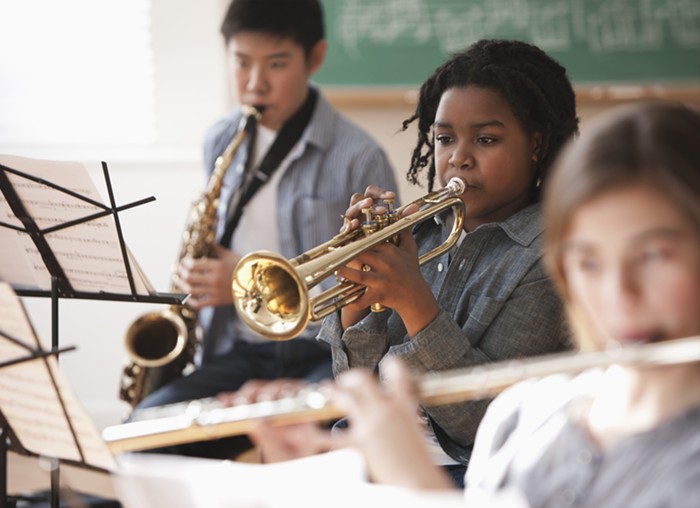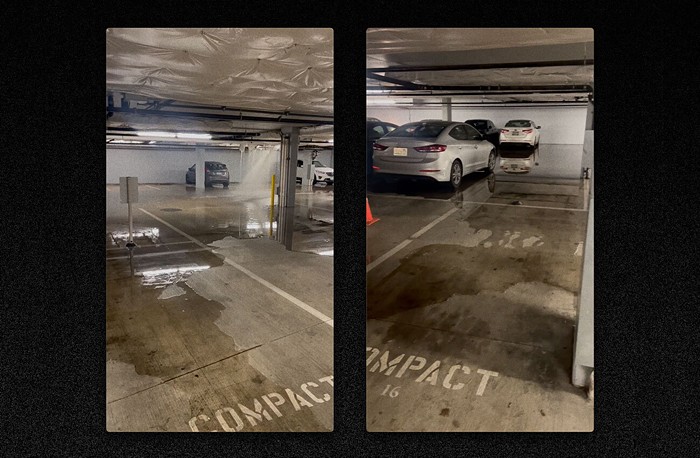The Temple of Justice must do the people's work.
POWEROFFOREVER / GETTY
Comments
Please wait...
and remember to be decent to everyone
all of the time.
Comments are closed.
Commenting on this item is available only to members of the site. You can sign in here or create an account here.




















@1 You're aiming your fire in the wrong direction. Supporters of this tax were perfectly fine with keeping it out of the courts. It's the opponents who filed the lawsuit.
Courts don’t weigh in in “the will of the people,” they weigh in in the merits of a legal argument. It’s intentionally a separate branch of government for that reason.
@4 well in every other state that has a capital gains tax including federal its part of your income tax, so yes it is in fact an income tax.
Look if this has the support of the people then do the right thing and put it forth as a constitutional amendment. The dems control the entirety of the government so there is no reason they can't go this route except for the fact that they know this does not have the support of the people and will get voted down if they even try as it has every other time they have tried.
@2 you are being really naive about this whole effort. It was never about a capital gains tax. It was always about getting a case in front of the SC so they could overrule the previous decisions treating income as property. They knew it would get challenged and that is exactly what they wanted. This is a quote from Senator Pedersen during a 43rd Dems town hall last year.
“The next step was to do the capital gains tax, which is important – I mean, it’s not an insignificant amount of money – but the importance, in my opinion, is less about the dollars that it’s raising and more about the fact that the opponents are attacking it as an income tax, and that gives us a clean shot to go back to the Supreme Court and go back to the root of this entire problem,” Pedersen said at the March 15 virtual meeting.
He went on to say, “We’ve got to figure out how to have an income tax in our state, in getting the state Supreme Court to say, ‘You are free legislature to do an income tax, or a capital gains tax, or wealth tax,' you know, any of these things, with a simple majority, is what we’ve been working on.”
"The court should listen to the power of the people and uphold equity in our tax system."
Maybe it's just me, but I'd rather see our judiciary objectively apply law to fact without regard to popular opinion. If you want to see what it looks like when courts do otherwise, take a look at some of the decisions coming from federal judges appointed during the Trump administration.
That approach may result in striking down the capital gains tax unconstitutional. That's totally fine: If there is indeed widespread public support for such a tax, it should be a simple matter to amend the state constitution.
@3 and @6 I'm aware of the strategic thinking behind the backers of the CGI. But its opponents had a choice. They could have graciously, if grudgingly, accepted the reality that this tax is extremely limited in scope and a reasonable, modest structural adjustment for a state that is dangerously dependent on one form of tax. Instead they took the bait, and as a result may well end up with an unambiguous ruling that all income taxes are constitutional. That's 100% on them.
CGT not CGI (ugh, can't edit)
There's something about native Washingtonians that makes them clutch their pearls and clench their spincthers whenever talk of any sort of income tax happens. They've really been indoctrinated.
@13: Washington was the fourth state in which I worked, and the first one without an income tax. In the decades I lived there, I never nice saw any indication an income tax would improve anything. Even now, the complaints about the regressive tax system never lead to any proposal to reduce or eliminate taxes on the poor, just to increase taxes overall. I imagine many voters in Seattle would eagerly pay more in progressive taxes if it reduced taxes on the poor (without even requiring revenue-neutrality) but again, the agenda is so obviously just to increase taxes, and no one is falling for it.
@10 you say it's limited in scope now but the only reason that is the case is because the sole intent was to get this in front of the court. If they let in pass the legislature would almost certainly began to expand it. In this session we already had a bill (SB 5335) that tried to lower the threshold to $15K and raise the tax to 8.5% and it hasn't even been ruled legal yet. The tax as currently constructed is nothing more than a Trojan Horse. If the SC let's it stand but doesn't overturn the income as property ruling the legislature will lower the limit and increase the tax, if the SC overturns the previous income ruling the legislature will move to implement a statewide income tax targeted at all brackets. As for the state being depending on one type of tax I really don't see that as a weakness. The state has literally been rolling in money the last few years and as has been noted several times there has been zero consideration to rolling back any regressive taxes, this is all new revenue to spend on whatever.
Expanding on @14, based on the most recent General Fund balance sheet,* the State will have $2,833,800,000 in reserves at the end of the 2021-23 biennium.
That's not even counting the "Rainy Day Fund" Budget Stabilization Account and the Washington Rescue Plan, which will contain additional 5,579,100,000.
In other words, after every single item in the 2021-2023 Budget and 2022 Supplemental Budget is fully paid for, the State will still be sitting on $8.4 billion in reserves. The legislature, however, is still looking for ways to increase tax revenue, and has failed to take any action to reduce regressive taxes.
https://ofm.wa.gov/sites/default/files/public/budget/documents/currentbalance.pdf
@13 — wrong. When Initiative 1098 was on the ballot in 2010, it would have reduced the state portion of the property tax levy by 20% in exchange for a 5% state income tax that didn’t apply to incomes below $400,000. It lost 64/36. It lost in every county in the state. It lost King County 54/46!
Link here:
results.vote.wa.gov/results/20101102/initiative-measure-1098-concerning-establishing-a-state-income-tax-and-reducing-other-taxes.html
The idea that there is some groundswell of support for a state income tax is ridiculous.
@17 Perhaps, but I'd bet voters would approve this particular tax. I-1098 actually polled well at first (and it did pass in Seattle by a wide margin) but the Great Recession enabled its opponents to argue persuasively that yes, the state's tax system is out of whack but Washington needs this competitive advantage right now.
@14 All I can do is speak for myself: I would gladly support a meaningful reduction of the sales tax (say, about half) in exchange for a high-end, progressive income tax. That combination would substantially lower the total tax burden for the vast majority. Failure to include a sales tax reduction in I-1098 was a major mistake (though it likely wouldn't have passed anyway, for the reason cited above).
@18 --- the issue with WA's tax system is the same as health care: if you poll people and ask whether something different that's relatively vague would be better than what they currently have, the answer will be yes. If you try to implement a specific plan, it will be deeply unpopular. Status quo bias is a real thing.
CKathes dear, back when I was just a little Catalina in Iowa, that's the kind of tax scheme we had: a 4% sales tax (with exemptions for food and used goods, which meant no sales tax at thrift stores!!!) and a progressive income tax (at least part of which could be written off against federal taxes).
Property taxes were high-ish, but in those days Iowa had very good public schools and a good university system that was quite affordable. We also had well-maintained state parks and lots of other governmental services. And you could claim a "homestead" exemption if you lived in your home, as well as a veteran's exemption (if, like Papa Vel-DuRay, one was a veteran)
Iowa has gone hee-haw now, so I'm sure the schools are failing. And the tuition at the U of Iowa - a mediocre institution at best - is laughably high.
But back in the day it all worked.
@6 - “ The dems control the entirety of the government so there is no reason they can't go this route…”
Dems do not have the supermajority needed in the Legislature to pass a constitutional amendment
"tax the Rich
feed the Po'
turn around
no Po' no Mo'"
--@Ten Years After
updated.
@17: I specified Seattle, not anywhere else — I certainly did not include even the rest of King County.
My point was, and remains, that politicians are so hell-bent on spending money, they’re not even talking about reducing any of the regressive taxes which they (and the Stranger) keep whining about as justification for raising progressive taxes. It’s an incredibly stupid strategy, one likely to lose even in Seattle, but that’s the political “leadership” the state now has.
No, it would be gracious courtesy for the court to not uphold the tax as the top 1% already pay the most of the income taxes.
Raindrop, in my mind I used to imagine you looking like Melanie Wilkes, but I've changed that. You are the spitting image of Nellie Olson.
@24: I'm fine with you disassociating me from Olivia De Havilland - she was so rude to her sister Joan Fontaine.